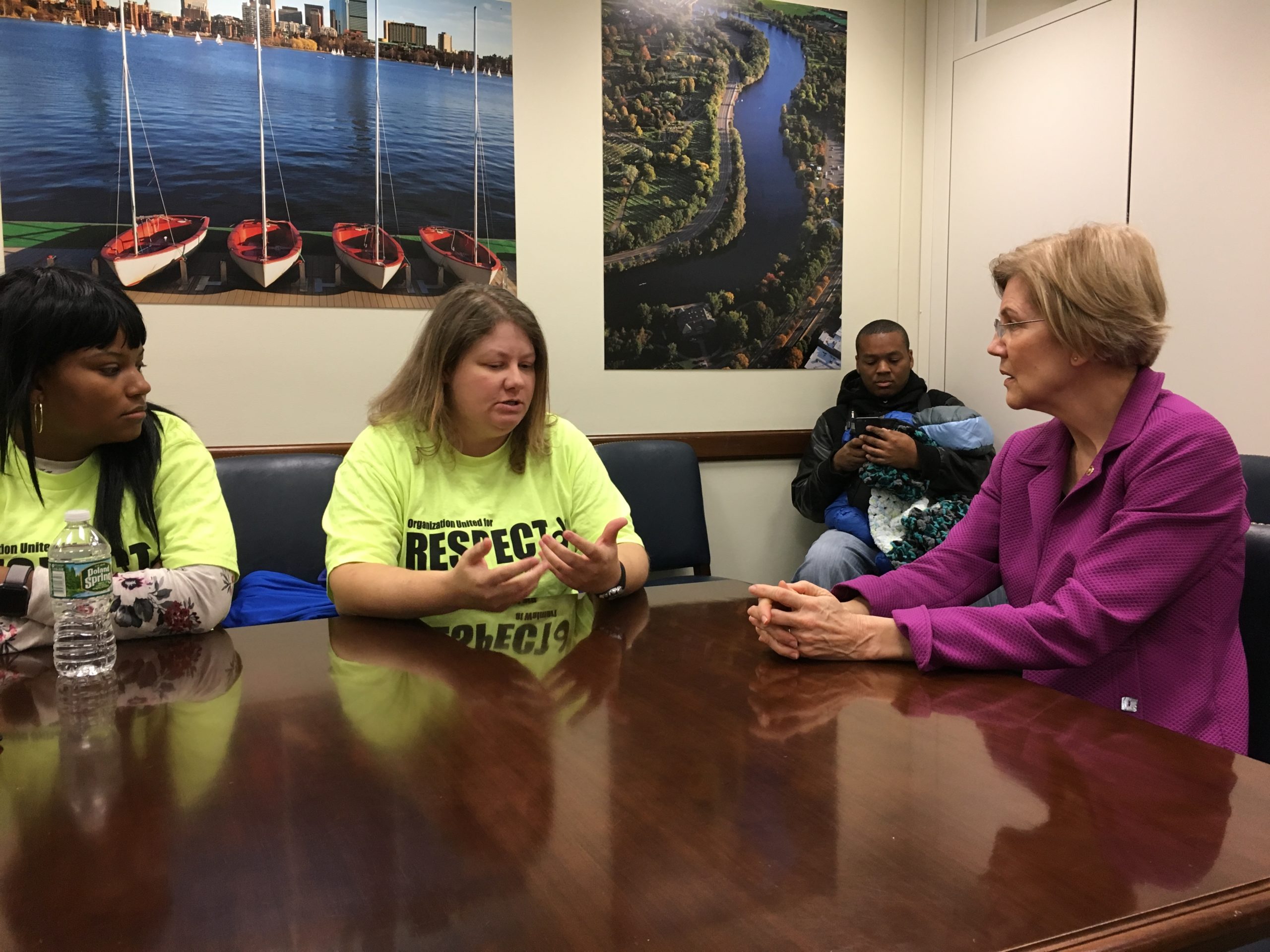Lawyers’ Committee & NWLC Sue the OMB for Failure to Disclose Documents Related to its Decision to Suspend Employer Pay Data Collection
WASHINGTON, D.C. – The Lawyers’ Committee for Civil Rights Under Law and the National Women’s Law Center (“NWLC”) filed a lawsuit Wednesday against the Office of Management and Budget (“OMB”) under the Freedom of Information Act. The lawsuit seeks the disclosure of documents related to the OMB’s sudden and largely unexplained decision to halt the Equal Employment Opportunity Commission’s (“EEOC”) pay data collection rule to uncover pay gaps and promote pay equality.
“The administration’s move to suspend the collection of pay data from employers threatens to turn the clock back on efforts to identify and eliminate pay discrimination through increased transparency and reporting. Those most affected by pay discrimination, including African-American men and women, deserve to know why the administration chose to side with corporations, without any input from the public,” said Dariely Rodriguez, Director of the Economic Justice Project for the Lawyers’ Committee for Civil Rights Under Law. “With the complaint filed today, we are seeking the answers the Trump administration should have already provided to the public.”
The OMB has failed to provide any response to Freedom of Information Act (FOIA) requests submitted by the Lawyers’ Committee and NWLC last year. The lawsuit filed Tuesday with co-counsel Dorsey & Whitney LLP in the United States District Court for the District of Columbia concerns the Trump administration’s repeated failure to abide by basic requirements of openness and transparency.
“Since the Trump Administration has chosen, without explanation, to empower employers to continue to hide pay discrimination under the rug, we are fighting back,” said Emily Martin, NWLC General Counsel and Vice President for Education and Workplace Justice. “This attack on equal pay is part of a broader effort by the administration to enrich big business by stripping working women and people of color of key protections, and we won’t stand for it. In this lawsuit, we aim to shine a light on the secretive process that led to the inexplicable decision to eliminate the pay data collection.”
The EEOC’s pay data collection rule to require large companies to report workforce pay information by job category, sex, race, and ethnicity to the EEOC was approved by the OMB in 2016 after a thorough and transparent process, including multiple avenues for stakeholders, including businesses, to submit public comment. In contrast, the OMB’s decision to halt the rule was made in secret after corporate groups, including the Equal Employment Advisory Council and the U.S. Chamber of Commerce, requested review and rescission of the previously approved pay data collection. The OMB offered no opportunity for public notice and comment before revoking the rule in August 2017.
The EEOC’s pay data collection rule is an important effort to addressing persistent racial and gender wage gaps. Women are paid less than men in nearly every occupation. Controlling for race, region, unionization status, education, experience, occupation, and industry still leaves 38 percent of the pay gap unexplained.
- Women working full-time, year-round are typically paid 80 cents for every dollar paid to their male counterparts.
- Comparing women of color to white, non-Hispanic men, the pay gaps are generally even larger:
- Black women typically make 63 cents, Native American women 57 cents, and Latinas 54 cents for every dollar paid to white, non-Hispanic men for full-time, year-round work.
Men of color are also paid significantly less than their white male counterparts.
- For every dollar paid to white, non-Hispanic men, Black men are paid 72 cents and Latino men are paid 62 cents.
The EEOC’s pay data collection rule supports much-needed federal civil rights enforcement action and incentivizes employers to proactively correct pay disparities.
To read the complaint filed Wednesday, click here.
###
For immediate release: March 21, 2018
Contact: Maria Patrick ([email protected]) or Olympia Feil ([email protected])




